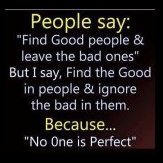Search the Community
Showing results for tags 'change your lifestyle'.
-
1. Wabi-Sabi A wonderful sounding name, Wabi-sabi is the Japanese art of finding beauty in imperfection and of accepting the natural cycle of growth, decay, and death. According to experts, Wabi-sabi philosophy "nurtures all that is authentic by acknowledging three simple realities: nothing lasts, nothing is finished, and nothing is perfect." Buddhist author Taro Gold describes Wabi-sabi as "the wisdom and beauty of imperfection." The concept is useful for self-reflection and development. Learning to see that there is beauty in imperfection can be liberating for those of us who demand too much from ourselves. For example, visitors to this website may be seeking to transform their home to the standards of the KonMari Method. Creating a beautiful, organized and peaceful home is attainable. But we should not be disheartened if the road to get there is windy and filled with obstacles - like kids or spouses! Nor should we believe that the end result will be perfect, or at least, exactly as we had imagined. Wabi-sabi also helps us to accept the flaws of others. Considering your spouse's quirk to be beautiful rather than annoying might seem hard at first, but placed in the context of Wabi-sabi, it makes perfect sense. Consider this scene from Good Will Hunting where Robin Williams provides a great example of Wabi-sabi thinking. Language warning! They play a couple guys from south Boston so F-bombs abound. 2. Kaizen Kaizen means “change for the better.” The Kaizen way of thinking has been adopted by businesses around the world as a way of instilling the value of continuous improvement through small changes. But the concept also applies to personal improvement. Whether we are trying to become healthier, learn a new skill or create a new habit, Kaizen recommends a steady and gradual approach to achieving our goals. As Kaizen expert Jun Nakamoro explains, "Kaizen is a process in your mind, of reviving your innate potential as a human being by developing strong willpower to break the status quo." What I love about Kaizen is that it tells you to think small to get somewhere big. Enough small victories, whether it's a healthy choice at lunch or devoting an hour to your side project, over time, can lead to success. I came across some excellent articles on applying Kaizen to personal development, including here, here and here. 3. Moai Moais are informal social groups that form to provide support to its members. Moai means "meeting for a common purpose" in Japanese and originated from the social support groups in Okinawa, Japan. According to research, Moais are one of the leading factors of the longevity of lifespan of the Okinawan people, making the region among the highest concentration of centenarians in the world. I love the concept of Moai because I believe we need these social groups for our personal well-being now more than ever. Demanding careers, family life and an increasing tendency to live our lives online can lead to social isolation. According to author Shelley Provost, "Moai can serve as an extended family where social and emotional needs are met—managing a crisis, reducing stress, connecting emotionally and, at times, assuaging grief. Essentially, a moai is a group of people who “have your back” and commit to all aspects of your well-being." This is similar to the Buddhist idea of "itai doshin". In Japanese it, roughly translated, means “Many in body, one in mind.” It’s a way of thinking about our place in society that I see as the antidote to narcissism. It argues that even a small group of well meaning people can be influential in creating happiness and peace in their community. Building a Moai takes time, effort and a certain amount of vulnerability. But it can begin with a simple act such as a dinner party among acquaintances. Start building your Moai in 2017! 4. Ikigai or Why We Wake Up in the Morning Ikigai is a Japanese concept meaning "a reason for being". Everyone, according to the Japanese, has an ikigai. Finding it requires a deep and often lengthy search of self. This journey is regarded as essential, since the discovery of one's ikigai is what brings satisfaction and meaning to life. You don't have to dedicate yourself to curing cancer to pursue a noble Ikagai. But, it does require an honest assessment of what you're passionate about, what the world needs, what you are good at and what is practical from a financial perspective. This is a refreshing approach which contrasts with the thought process many of us go through in finding a career. While we might want to change the world, we can't lose sight of practical considerations - our talent or financial situation. And for those concerned only with money, this approach reminds them of the need to consider our obligation to others - the needs of our community or the world - and the responsibilities that come with our talents. I hope you find this topic as interesting as I do. If so, I'm sure you will love this wonderful TED Talk by Dan Buettner. He touches on Moai and Ikigai as well as a number of other theories about why the Okinawa people live such long lives. Source - http://joyofless.ca/blog/2016/12/17/five-japanese-concepts-to-apply-to-your-life-in-2017

